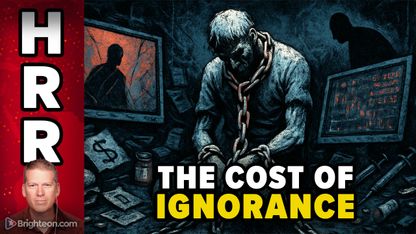
Mika Salminen, director at the Institute for Health and Welfare (THL), says that they would instead give the Pfizer vaccine to men born in 1991 or later.
The new restrictions are based on data collected in a Nordic study involving men from Finland, Sweden, Norway and Denmark, which found that men under the age of 30 who received the Moderna vaccine had a slightly higher risk than others of developing myocarditis.
Swedish and Danish health officials also previously announced that they would pause the use of the Moderna vaccine for all young adults and children, citing the same study. Preliminary data has been sent to the European Medicines Agency (EMA), the European Union's medicines regulator, for further assessment.
The EMA determined in July that cases of heart inflammation in some male patients were likely associated with Moderna's COVID-19 vaccine. (Related: BREAKING: Sweden, Denmark both ban Moderna covid vaccine for causing myocarditis in young people.)
The study was conducted by Denmark's Statens Serum Institut, a government institution under the country's Ministry of Health; the Medical Products Agency in Sweden; the National Institute of Public Health in Norway and Finland's THL.
U.S. and European regulators have cautioned that both the Moderna and Pfizer vaccines appear to be linked to chest pain and heart inflammation in teenagers and young adults.
Swedish health authorities have noted that the heart symptoms "usually go away on their own," but patients still have to be assessed by their doctors. Data also points to an increased incidence of myocarditis in connection with the COVID-19 vaccination, mostly in male adolescents and young adults.
The preliminary analysis from the Nordic study indicates that the connection is especially clear with the Moderna vaccine after the second dose is taken. "The increase in risk is seen within four weeks after the vaccination, mainly within the first two weeks," the analysis states.
Use of Moderna vaccines suspended in Scandinavian countries
In Denmark, people under 18 will no longer be offered the Moderna vaccine as a precaution. Danish health authorities note that data showed an increased risk of inflammation when inoculated with the Moderna vaccine. Norway's health agency has also urged young people under 30 to opt for the Pfizer vaccine due to "the increased risk of a rare side effect" with Moderna.
Meanwhile, Italy's Health Minister Roberto Speranza says that his country isn't planning on suspending or limiting the use of the Moderna vaccine, adding that European countries should work together more closely to coordinate better.
U.S. regulators and the World Health Organization (WHO) have insisted that the risks of getting the mRNA vaccines are outweighed by their benefits. Moderna executives, in particular, have stepped up to defend their vaccine.
A Moderna spokesperson says it was aware of the decision made by Sweden and Denmark, adding that the cases were typically mild and individuals affected usually recovered within a short time frame with standard rest and treatment.
Scandinavian countries have adequate supplies of both Pfizer and Moderna vaccines and will still be able to continue their vaccination rollouts.
Anders Tegnell, Sweden's chief epidemiologist, says that they will follow the situation closely and act quickly to ensure that vaccinations are safe and effective in protecting people against the disease.
Get more updates about COVID-19 vaccinations around the globe at Pandemic.news.
Sources include:
Please contact us for more information.























